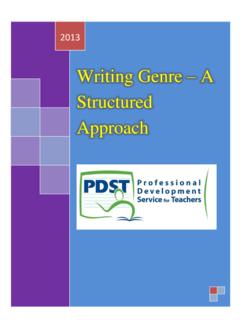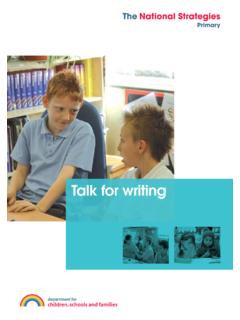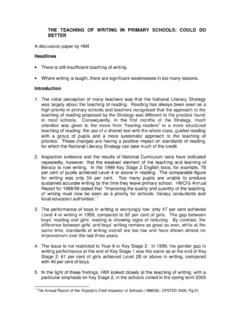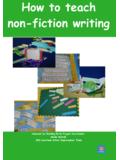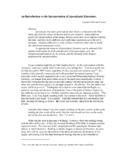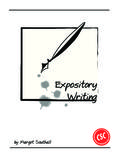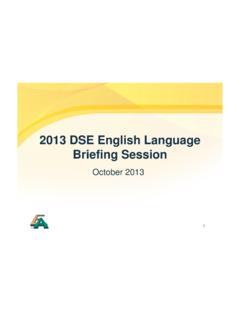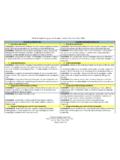Transcription of Writing Goes Back to School: Exploring the …
1 The Canadian Journal for the Scholarship of Teaching andLearningVolume 8|Issue 3 Article 14 June 2017 Writing Goes Back to School: Exploring the Institutional Practice of Mystery in a GraduateEducation ProgramRosamund K. StookeUniversity of Western Ontario, HibbertUniversity of Western Ontario, this and additional works at: of theEducation CommonsRecommended CitationStooke, R. K., & Hibbert, K. (2017). Writing Goes Back to School: Exploring the Institutional Practice of Mystery in a GraduateEducation Canadian Journal for the Scholarship of Teaching and Learning, 8(3). Retrieved Goes Back to School: Exploring the Institutional Practice ofMystery in a Graduate Education ProgramAbstractDrawing on a qualitative case study of Writing practices and pedagogies in one Canadian graduate Educationprogram, this article discusses roles and responsibilities of course instructors for teaching and supportingacademic Writing at the master s level.
2 Data were collected through individual, semi-structured, in-depthinterviews with 14 graduate students and eight professors and they were analyzed thematically. The discussionis framed by the academic literacies pedagogical framework (ACLITS). The data suggest that academicwriting expectations can be sources of extreme stress for graduate students. The students and instructorslacked a common language to discuss student texts. In the absence of explicit academic Writing pedagogies,students and instructors sometimes turned to simplistic advice received at school. The paper also discussespedagogical challenges associated with the teaching of disciplinary Writing genres in multi-perspectival fieldssuch as Curriculum cet article, bas sur une tude de cas qualitative de pratiques et de p dagogies de r daction men e dansun programme universitaire d ducation de cycle sup rieur dans une universit canadienne, il est question desr les et des responsabilit s des instructeurs concernant l enseignement et les travaux de r daction universitairede soutien au niveau de la ma trise.
3 Les donn es ont t recueillies partir d entrevues individuellesapprofondies, semi structur es, aupr s de 14 tudiants de cycle sup rieur et de huit professeurs. Les entrevuesont ensuite t analys es de mani re th matique. La discussion se place dans le cadre p dagogique deslitt racies universitaires (ACLITS - Academic Literacies Pedagogical Framework). Les donn es sugg rent queles attentes en mati re de travaux de r daction universitaire peuvent tre des sources de stress extr me pour les tudiants de cycle sup rieur. Les tudiants et les instructeurs n ont pas de langue commune pour discuter lestextes produits par les tudiants. En l absence de p dagogies explicites en mati re de travaux de r dactionuniversitaire, les tudiants et les instructeurs se tournent parfois vers des avis simplistes obtenus l cole. Cetarticle pr sente galement les d fis p dagogiques associ s l enseignement des genres disciplinaires de travauxde r daction dans des domaines qui pr sentent des perspectives multiples tels que les tudes du , graduate students, Curriculum Studies, academic writingCover Page FootnoteThe authors wish to thank the students and instructors who participated in the study and to acknowledge theWestern University Teaching Support Centre for funding the research paper/rapport de recherche is available in The Canadian Journal for the Scholarship of Teaching and Learning: Writing initiatives in higher education (HE) tend to proliferate during periods of program expansion.
4 Witness the implementation of first-year composition courses in American colleges and universities during the 1960s (see Berlin, 1987) and the basic Writing courses for students deemed not ready for the composition course (see Shaughnessy, 1976). At first glance, the current interest in graduate students Writing in Canadian universities follows a similar pattern. However, the expansion and internationalization of graduate programs in Canada are taking place alongside an expectation for graduate students to begin publishing earlier in their careers and an increased awareness that graduate level Writing can be challenging for any student. The following passage is taken from a website published by the University of Toronto. Graduate students need to be able to communicate sophisticated information to sophisticated audiences. As you prepare to attend your first conference, to write your first proposal, or to publish your first paper, you will need stronger communication skills than those needed in undergraduate work.
5 (University of Toronto School of Graduate Studies: Office of English Language and Writing Support, 2017, ) In this paper, we draw on 22 qualitative interviews with students and instructors in a Canadian Master of Education (Curriculum) program to discuss ways in which course instructors and thesis supervisors might support graduate students as writers. The study was conceived in response to our concerns about the number of requests we were receiving for individual assistance on written assignments in an Introduction to Curriculum course. We revised the course syllabus to include explicit instruction in the composition of academic text genres such as the abstract, the literature review, and the position paper and then applied for a small grant to study graduate students needs for Writing instruction and support. By listening to what students said about their experiences as writers and triangulating the data with input from instructors who taught Curriculum students, we hoped to find ways to better support our students.
6 We asked: What did students find helpful? What responsibilities might course instructors and supervisors assume with respect to Writing instruction and support? The title of the paper, Writing Goes Back to School, is a play on words inspired by the number of comments our participants made about Writing tips they had received much earlier in their academic careers. Our subtitle, institutional practice of mystery is borrowed from Writing scholar, Teresa Lillis (2001, p. 53) who used the phrase when reporting on research with non-traditional students in British undergraduate programs during the 1990s. Lillis wrote that she anticipated new students would find program expectations mystifying, but wondered if pedagogical practices in the programs were contributing to students ongoing mystification (pp. 59-60). Like Lillis, we were motivated to learn what instructors could do to demystify program expectations and what part Writing pedagogies could play in such a project.
7 Writing Studies researchers who take a sociocultural perspective ( , Hyland, 2011; Prior, 1998; Russell, Lea, Parker, Street, & Donahue 2009) have long argued that a one-size-fits-all approach to academic Writing instruction and support will not suffice since Writing practices are always situated in a social and disciplinary community with distinctive ways of asking questions, addressing a literature, criticizing ideas, and presenting arguments (Hyland, 2011, p. 12). These scholars contend that successful Writing mediates a writer s participation in their chosen field. Consequently, instructors and thesis supervisors are well positioned to support graduate student writers. A problem that arises, however, is that many course instructors became successful writers without explicit instruction in Writing . The prospect of taking on another responsibility can be daunting, especially when that responsibility seems only tangentially 1 Stooke and Hibbert: Writing Goes Back to SchoolPublished by Scholarship@Western, 2017related to the disciplinary content of the course.
8 We are not Writing scholars either, and we can relate personally to such concerns. We therefore conducted our literature review with the information needs of non-specialists in mind. We will argue that supporting graduate student writers in any field is a complicated undertaking, but supporting Curriculum graduate student writers is more challenging yet. In the first place, interdisciplinary fields such as Curriculum do not have one set of distinct ways of asking questions, addressing a literature, criticizing ideas, and presenting arguments (Hyland, 2011, p. 12). In the second place, Curriculum Studies programs are most often found at the graduate level. Having appropriated Writing practices associated with an undergraduate discipline, a graduate student of Curriculum might well experience the new Writing expectations as threats to a hard-won academic identity. Becoming a successful writer of Curriculum texts could be an alienating experience.
9 What is Curriculum? Curriculum is defined variously as the content of what is to be learned, a plan for teaching and learning, and the experiences and activities involved in formal and informal learning settings (Portelli, 1987, p. 387). From its beginnings early in the twentieth century, Curriculum evolved from a field focused on practical questions about the selection and development of content for the newly-established American public school system into an international field of inquiry that embraces theoretical and practical questions about any sector of education. The transformation from Curriculum Development to Curriculum Studies began in the 1970s when a radical group of scholars known as Reconceptualists argued that Curriculum s exclusive focus on practical questions privileged the status quo in schools and served only the interests of the most wealthy and powerful members of society (Schubert, 2010, p.)
10 230). The Reconceptualist movement opened Curriculum Studies to diverse social, political and economic perspectives as well as literary and arts-based inquiries, but the field s reluctance to police its disciplinary boundaries has been a source of mystification, even to Curriculum scholars. The acclaimed Canadian theorist, Kieran Egan, for example, complained that one can do almost anything in education and claim plausibly to be working in curriculum (1978/2003, p. 14). We concluded that any effort to demystify Writing for our graduate students must therefore involve a discussion about Curriculum as an interdisciplinary field. Writing in Graduate School: Theory and Research Studies of student Writing in HE can be found in the literatures of many fields, including Anthropology, Communication Studies, Cultural Studies, Education, Literary Studies, Linguistics, Psychology, Sociology, and of course, Writing Studies (Prior & Lunsford, 2008).










